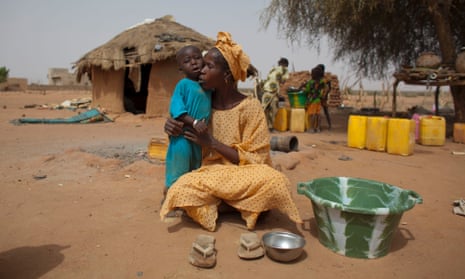The highlight of World Water Week day two was the Africa Focus sessions. Discussion points included the state and scale of hydropower, transboundary water management and the declining reliance on donor-funded infrastructure projects on the continent. We caught up with some of the speakers to discuss water challenges in more depth. Keep reading to see what they had to say.
Highlights
- The PepsiCo Foundation and the Inter-American Development Bank unveiled a new data management and water modeling tool called Hydro-BID. They say the tool “has the potential to forecast water availability and supply across Latin America and the Caribbean under virtually any climate, population and land use scenario”.
- African Water Facility announced a new initiative to support African water projects that aim to build resilience to climate change. It will commit a total of €16m in funding grants.
- Several east Asian countries have achieved almost universal sanitation coverage in a short space of time. A report from WaterAid (pdf) published and presented today explores how we can learn from their success.
- A new study on sanitation projects in Madagascar was launched by CLTS Foundation. Over the last three and a half years the country has improved sanitation in almost 10,000 villages.
Word of the day
Wash: You will hear this acronym banded around a lot at World Water Week. In the words of American climate change scientist Peter Gleick describes it as “‘water, sanitation, and hygiene’ and the idea that meeting basic human water needs must include all three to be effective”.
Hot topic: Africa Focus news
New Nigerian dam is expected to generate 3050MW of electricity
Sarah Reng-Ochekpe, minister for water resources, Nigeria said:
In Nigeria, even though we have separate ministries for energy and water resources, they have a very strong relationship. We recognise that there is a meeting point between energy and water and that is the need to generate hydropower. We have over 240 dams in Nigeria and we still have some under construction, although not all of them have power components. The Manbilla dam is expected to generate about 3050 megawatts of electricity. The Kashambilla dam project is under the ministry of water resources, but because it has a power component, we work with our energy colleagues.
Senegal admits largest water challenge is sanitation
Mansour Faye, minister of water and sanitation, Senegal said:
We are doing well for water in Senegal. We have good rivers and the millenium development goal (MDG) targets for water have been achieved in both rural and urban areas. Our main water challenge today is sanitation, where we have not achieved our targets in either rural or urban areas. The government is working to develop a new investment plan to increase access to sanitation while keeping the good results we have for water. We are hopeful that water and sanitation will be one of the major sustainable development goals.
What you are saying:
Johan L. Kuylenstierna, executive director, Stockholm Environment Institute
“If we are to create a sustainable development for all, the relationship between water and energy must be made visible and addressed. This requires an open and solution-orientated dialogue. So, summarising my impressions so far at World Water Week, I am encouraged by the shift in discussion from conflict and trade-offs, to a focus on synergies and sharing benefits.”
Quote
Is #water a human right or an economic good? Yes. And both sides of the debate should get over it. #wwweek
— Peter Gleick (@PeterGleick) September 1, 2014
Statistic
A new report (pdf) from World Health Organisation and Unicef says that 1.8bn people are estimated to use a source of drinking water that is contaminated with faeces.
Picture
Coming up
- Tomorrow we will follow discussions at the climate change workshop. Join in and share your thoughts on #wwweek.
- Stay tuned to hear who is joining the panel for our live chat on water and energy this Thursday. If you want to recommend someone, there’s still time. Send your suggestions to holly.young@guardian.co.uk.
Struggling to keep up? Catch up with all our World Water Week content here.
Join our community of development professionals and humanitarians. Follow @GuardianGDP on Twitter

Comments (…)
Sign in or create your Guardian account to join the discussion